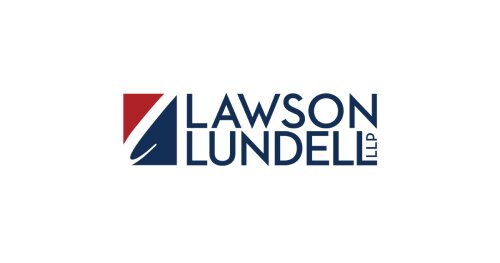Best Hiring & Firing Lawyers in Yellowknife
Share your needs with us, get contacted by law firms.
Free. Takes 2 min.
List of the best lawyers in Yellowknife, Canada
About Hiring & Firing Law in Yellowknife, Canada
Yellowknife, the capital of the Northwest Territories, operates under Canadian federal and territorial employment laws, which guide the processes of hiring and firing. The key objective of these laws is to ensure that both employers and employees engage in fair practices. The Employment Standards Act of the Northwest Territories governs several aspects of hiring and firing, aiming to promote an equitable work environment. These laws ensure employers maintain non-discriminatory hiring practices and adhere to fair termination processes.
Why You May Need a Lawyer
Engaging with hiring and firing processes can lead to complex legal scenarios. You might require legal assistance if you encounter the following situations:
- You believe you have been unjustly terminated without cause or due process.
- You are an employer seeking to understand your obligations when terminating an employee.
- There are disputes over compensation, severance, or other termination benefits.
- You face allegations of discriminatory hiring practices or wrongful termination.
- You need representation in mediation or court proceedings related to employment disputes.
Local Laws Overview
The Northwest Territories' Employment Standards Act and Human Rights Act are critical for understanding hiring and firing in Yellowknife. Here are essential aspects:
- Employment Contracts: An employment contract must adhere to minimum standards set out by the Employment Standards Act.
- Termination Notice: Employers are required to provide notice or pay in lieu of notice, depending on the period of employment.
- Just Cause for Dismissal: Employers must have a valid reason, substantiated by evidence, for dismissing an employee without notice.
- Non-discrimination: The Human Rights Act prohibits discrimination based on race, gender, disability, and other protected grounds.
- Severance Pay: If applicable, severance pay must comply with the terms agreed in the employment contract or legal requirements.
Frequently Asked Questions
What is a reasonable period of notice for termination?
The notice period generally depends on the length of employment and other factors specified under the Employment Standards Act. It can range from one week to several months.
Can an employer fire an employee without notice?
An employer can only terminate without notice if there is a just cause, which must be well-documented and justified.
Is severance pay mandatory in the Northwest Territories?
Severance pay depends on the terms of the employment contract and whether an employee is terminated without cause.
What recourse do I have if I believe I've been wrongly terminated?
You can file a complaint with the Employment Standards Office or consult a lawyer specializing in employment law to discuss your legal options.
Are there specific hiring practices employers must follow?
Yes, employers must follow non-discriminatory practices as outlined in the Human Rights Act, ensuring that no candidate is unfairly disadvantaged.
What should be included in an employment contract?
A typical employment contract should include job duties, salary, benefits, termination conditions, and any non-compete clauses.
Can I negotiate severance terms?
Yes, employees can negotiate severance terms, especially if the offered severance does not meet legal standards or contractual agreements.
What constitutes wrongful dismissal?
Wrongful dismissal occurs when an employee is terminated without cause and without the appropriate notice or compensation.
How does the appeals process work in cases of wrongful termination?
Employees can file a complaint with the Employment Standards Office or pursue litigation with legal assistance to challenge a wrongful termination.
Is it legal to fire someone based on performance issues?
Yes, but the employer must provide documented evidence of performance issues and allow the employee an opportunity to improve before termination.
Additional Resources
For additional information and support, consider reaching out to the following resources:
- The Employment Standards Office of the Northwest Territories for guidance on employment rights and disputes.
- The Northwest Territories Human Rights Commission to address discrimination concerns.
- Local legal aid services for those requiring legal representation or advice on employment matters.
- The Canadian Legal Information Institute (CanLII) for comprehensive legal information.
Next Steps
If you require legal assistance in hiring and firing matters, it’s important to seek professional advice. Start by contacting a local lawyer specializing in employment law to discuss your specific circumstances. Consider gathering any relevant documentation, such as employment contracts, termination letters, or correspondence, to assist in the consultation process. Prepare a list of questions or concerns you have about your situation to ensure a comprehensive consultation with your legal advisor.
Lawzana helps you find the best lawyers and law firms in Yellowknife through a curated and pre-screened list of qualified legal professionals. Our platform offers rankings and detailed profiles of attorneys and law firms, allowing you to compare based on practice areas, including Hiring & Firing, experience, and client feedback.
Each profile includes a description of the firm's areas of practice, client reviews, team members and partners, year of establishment, spoken languages, office locations, contact information, social media presence, and any published articles or resources. Most firms on our platform speak English and are experienced in both local and international legal matters.
Get a quote from top-rated law firms in Yellowknife, Canada — quickly, securely, and without unnecessary hassle.
Disclaimer:
The information provided on this page is for general informational purposes only and does not constitute legal advice. While we strive to ensure the accuracy and relevance of the content, legal information may change over time, and interpretations of the law can vary. You should always consult with a qualified legal professional for advice specific to your situation.
We disclaim all liability for actions taken or not taken based on the content of this page. If you believe any information is incorrect or outdated, please contact us, and we will review and update it where appropriate.









